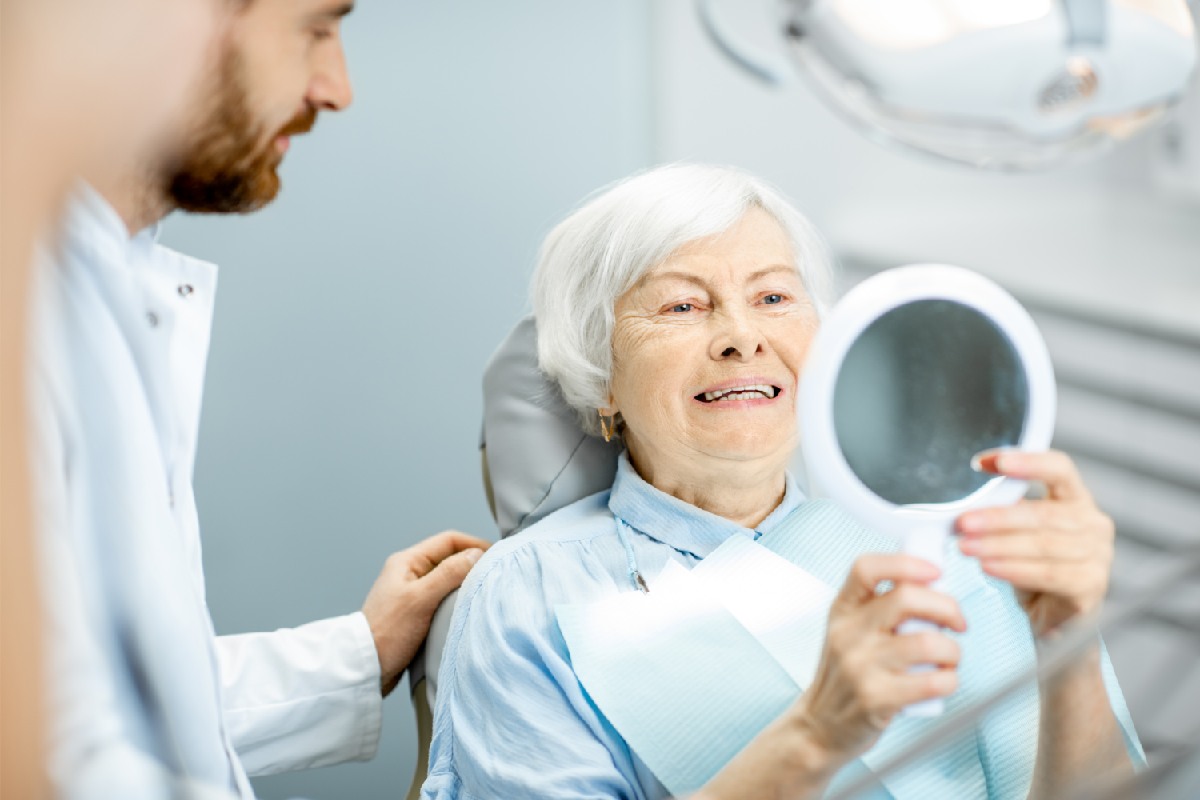

As we age, it becomes increasingly important to prioritize our overall health, including taking care of our teeth and gums. Maintaining good oral hygiene is essential for seniors to ensure a healthy smile and a better quality of life. In this comprehensive dental health guide for seniors, we will explore various aspects of oral care and provide helpful tips to keep your smile bright in your golden years.
Table of Contents
Proper brushing and flossing techniques are fundamental for maintaining good oral health. Seniors should brush their teeth at least twice daily with a soft-bristled toothbrush and fluoride toothpaste. Use gentle, circular motions to clean all tooth surfaces and pay extra attention to the gumline. Remember to replace your toothbrush every three to four months or sooner if the bristles become frayed.
Flossing is equally important, as it helps remove plaque and food particles between the teeth and the gum line. Use a gentle back-and-forth motion to clean between each tooth, and don’t forget to floss behind the back teeth. If traditional flossing is challenging, consider using interdental brushes, floss picks, or water flossers, which can be easier to handle.
Scheduling regular dental check-ups is crucial for seniors. Visit your dentist at least twice a year for professional cleanings and examinations. Dental professionals can detect and treat oral health issues early on, preventing them from escalating into more severe problems. During these visits, your dentist will also check for signs of gum disease, oral cancer, and other dental conditions. Remember, prevention is key to maintaining a healthy smile.
If you’re looking for a trusted dentist Orlando, it’s important to choose a provider who specializes in senior dental care and understands the unique needs of older adults. A local Orlando dentist can offer personalized care and convenient access to routine check-ups and treatments.
Many seniors wear partial or complete dentures to replace missing teeth. Proper denture care is essential for oral health. Remove and rinse dentures after meals to eliminate food debris. Clean your dentures daily using a brush and mild soap or denture cleaner. Soaking them overnight in water or a denture-cleaning solution helps maintain their shape and hygiene. Remember to clean your mouth, gums, and tongue, even if you wear dentures.
Dry mouth is a common problem among seniors, leading to various dental issues. Stay hydrated by drinking plenty of water throughout the day to combat dry mouth. Avoid alcohol and tobacco, as they can worsen dryness. Chewing sugar-free gum or sucking on sugar-free candies can stimulate saliva production. If dry mouth persists, consult your dentist, who may recommend saliva substitutes or prescribe medications to alleviate the condition.
Proper nutrition plays a vital role in maintaining dental health. Seniors should focus on a balanced diet of fruits, vegetables, lean proteins, and whole grains. Limit the intake of sugary and acidic foods and beverages, as they can contribute to tooth decay and enamel erosion. Calcium-rich foods like dairy products, leafy greens, and fortified cereals help strengthen teeth and bones. Remember, a healthy diet benefits your overall health and promotes oral well-being.
Seniors may face specific challenges when it comes to dental care. Arthritis or mobility issues can make brushing and flossing difficult. Consider using adaptive tools like electric toothbrushes with larger handles or floss holders for better grip and control. Additionally, if you take medications, inform your dentist about them, as certain drugs can affect oral health or interact with dental treatments.
Recognizing the connection between oral health and overall health is essential, as they are closely linked. Poor oral health can contribute to systemic conditions such as heart disease, diabetes, and respiratory infections. Seniors with chronic health conditions should pay extra attention to their oral health and work closely with their healthcare providers to develop a comprehensive care plan that addresses their health needs.
Dental care can be costly, but options are available to help seniors manage their expenses. Research and explore dental insurance plans specifically designed for seniors or consider joining discount dental programs that offer reduced rates for various dental procedures. Some dental schools or community clinics also provide affordable or low-cost dental services. It’s important not to neglect dental care due to financial concerns, as preventive measures are more cost-effective than treating advanced dental problems.
In addition to regular brushing and flossing, there are daily habits seniors can incorporate into their routine to promote oral health. These habits include:
Maintaining good oral health requires commitment and consistency. Seniors need to adopt a positive attitude towards their oral care routine and view it as an investment in their overall well-being. Surrounding yourself with a supportive network, whether family, friends, or healthcare professionals, can provide encouragement and accountability. Remember, a healthy smile can boost confidence, enhance social interactions, and improve quality of life.
Prioritizing dental health is vital for seniors to maintain a bright and healthy smile. By following proper oral hygiene practices, scheduling regular dental check-ups, and making healthy lifestyle choices, seniors can enjoy good oral health well into their golden years. Remember, it’s never too late to start caring for your teeth and gums. Embrace the journey towards a smile that shines brightly, and reap the benefits of improved oral and overall health.
In the relentless pursuit of entrepreneurial success, it’s easy to overlook the most vital asset—yourself.… Read More
A barrel sauna isn’t just a visually striking wellness addition—it’s an efficient and highly functional… Read More
Technology is an integral part of most teenagers' lives today. While devices and social media… Read More
LASIK is one of the most popular vision correction surgeries that offers you freedom from… Read More
Plumbing issues can arise unexpectedly, and understanding the costs involved is crucial for homeowners and… Read More
Skin aging is often associated with external factors like sun exposure and pollution, but inflammation… Read More